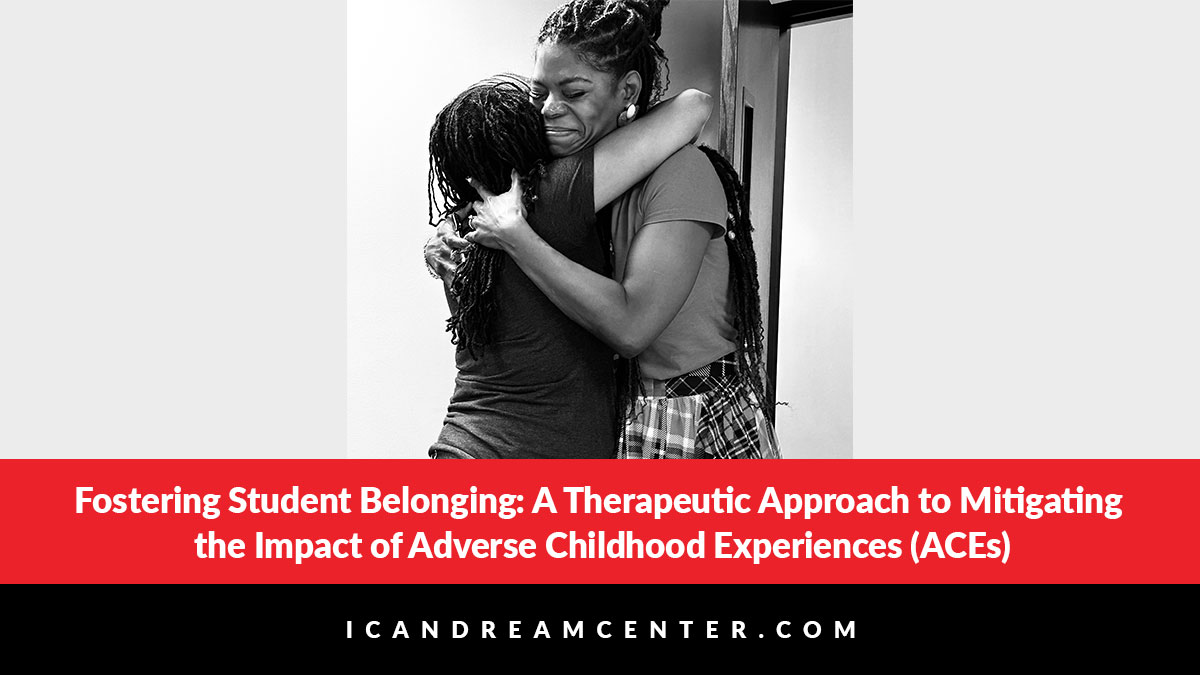
Fostering Student Belonging: A Therapeutic Approach to Mitigating the Impact of Adverse Childhood Experiences (ACEs)
In recent years, educators and mental health professionals have increasingly recognized the profound impact of Adverse Childhood Experiences (ACEs) on students’ well-being and academic success. As we navigate the complex landscape of education, it becomes imperative for therapeutic schools to adopt strategies that not only address the trauma resulting from ACEs but also create an environment where students feel a sense of belonging. This blog post will explore the significance of student belonging in reducing the impact of ACEs and how therapeutic schools play a crucial role in this transformative journey.
Understanding Adverse Childhood Experiences
ACEs encompass a range of traumatic events, including abuse, neglect, household dysfunction, and various forms of family instability. Research has consistently shown a correlation between the number of ACEs and adverse outcomes in adulthood, including mental health issues, substance abuse, and physical health problems. Therapeutic schools, with their specialized focus on emotional well-being, have a unique opportunity to intervene and break the cycle of trauma by fostering a culture of belonging.
The Power of Student Belonging
Belonging is a fundamental human need that extends beyond mere social interaction. It involves feeling accepted, valued, and connected to one’s community. For students who have experienced ACEs, the school environment can be a sanctuary—a place where they find support, understanding, and a sense of purpose. When students feel they belong, they are more likely to engage in learning, build positive relationships, and develop the resilience needed to overcome the challenges posed by ACEs.
Strategies for Fostering Belonging in Therapeutic Schools
Trauma-Informed Practices: Therapeutic schools must adopt trauma-informed practices that recognize the impact of ACEs on students’ behavior and academic performance. Creating a safe and supportive environment is the first step toward building trust and fostering a sense of belonging.
Cultivating Positive Relationships: Building meaningful connections with students is crucial for their emotional well-being. Therapeutic schools should prioritize small class sizes, mentorship programs, and regular check-ins to ensure that students feel seen and heard.
Inclusive Curriculum and Activities: Tailoring the curriculum to be inclusive and relevant to students’ diverse backgrounds can enhance their sense of belonging. Additionally, extracurricular activities and clubs provide opportunities for students to explore their interests and connect with like-minded peers.
Empowering Student Voice: Encouraging students to actively participate in decision-making processes within the school empowers them and reinforces a sense of belonging. This can include student-led initiatives, involvement in school governance, and open forums for expressing ideas and concerns.
Family and Community Engagement: Collaborating with families and the broader community creates a network of support for students. Therapeutic schools can organize family events, workshops, and community outreach programs to strengthen these connections.
In the journey to reduce the impact of ACEs, therapeutic schools play a pivotal role in creating an environment where students feel a deep sense of belonging. By embracing trauma-informed practices, fostering positive relationships, promoting an inclusive curriculum, empowering student voices, and engaging families and communities, therapeutic schools are transformative spaces that not only address the effects of ACEs but also lay the foundation for a resilient and thriving future for all students.
